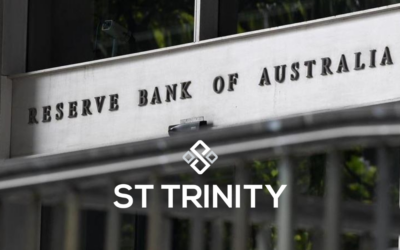The National Disability Insurance Scheme (NDIS) has significantly impacted the property market in Australia.
In particular, Queensland has seen a surge in demand for NDIS properties.
This article aims to provide a comprehensive analysis of the current and predicted demand for NDIS property in Queensland. It will delve into the intricacies of NDIS property investment, particularly discussing pros and cons, and the market trends shaping this sector.

Whether you’re an investor, a property developer, or an NDIS participant seeking suitable housing, this article will offer valuable insights. We’ll also explore the role of accessible homes and disability accommodation in meeting the housing needs of NDIS participants.
Table of Contents
Understanding the NDIS and Its Impact on Property Demand
The National Disability Insurance Scheme (NDIS) is a significant social reform in Australia. It provides support to people with disabilities, their families, and carers.

One of the key aspects of the NDIS is the provision of suitable housing for participants. This has led to a surge in demand for NDIS-compliant properties, particularly in Queensland.
Investors and property developers have recognized this demand, leading to a boom in NDIS property investment. However, the supply still falls short of the growing need.
Understanding the NDIS and its impact on property demand is crucial for anyone involved in this sector, from investors to policy-makers.
The Current State of NDIS Property Demand in Queensland
The demand for NDIS properties in Queensland is currently high and it’s growing in an increased rate. According to the published quarterly reports of National Disability Insurance Scheme in June 2024, the active participants of NDIS participants has increased from 139,608 to 142,297. This is driven by the increasing number of NDIS participants seeking suitable housing.
The state has seen a surge in the development of NDIS rental properties. However, the supply is yet to meet the demand. This has created a lucrative market for investors. Yet, it also presents a challenge for those seeking accessible homes.
Key Statistics: NDIS Participants and Housing Needs
As of 2020, there were over 91,000 NDIS participants in Queensland. A significant portion of these participants require suitable housing.

- Approximately 6% of NDIS participants are eligible for Specialist Disability Accommodation (SDA).
- This translates to over 5,000 individuals in need of SDA-approved homes.
These figures highlight the pressing need for more NDIS-compliant properties in the state.
The Supply Gap for NDIS-Approved Homes
Despite the growing demand, there is a noticeable supply gap in the market. The number of NDIS-approved homes is not keeping pace with the needs of participants.
This gap presents both a challenge and an opportunity. For NDIS participants, it means a limited choice of housing.
For investors and developers, it signifies a potential area for growth. The demand for NDIS properties in Queensland is expected to remain strong in the foreseeable future.
The Role of Specialist Disability Accommodation (SDA)
Specialist Disability Accommodation (SDA) plays a crucial role in the NDIS property landscape. It provides housing solutions for participants with extreme functional impairment or very high support needs.
SDA-approved homes are designed with accessibility features. These include wider doorways, wheelchair ramps, and modified bathrooms.

The development of SDA properties is a key strategy to address the housing needs of NDIS participants. It also presents a unique investment opportunity in the Queensland property market.
Investment Landscape: Pros and Cons of NDIS Property Investment
Investing in NDIS properties offers both economic and social benefits. However, like any investment, it also comes with risks.
The demand for NDIS-compliant homes in Queensland is high. This creates a promising market for investors. Government incentives further enhance the attractiveness of NDIS property investment. These include tax benefits and guaranteed rental income for up to 20 years.
However, investors must be aware of the challenges. These include the need for due diligence and understanding NDIS compliance requirements.
Moreover, the NDIS property market is influenced by policy changes. Investors must stay informed to navigate this dynamic landscape.
Economic Benefits and Risks
NDIS property investment can offer stable, long-term rental yields. This is due to the ongoing demand for disability accommodation.
However, the initial investment can be high. NDIS properties often require specific modifications and must meet stringent accessibility standards.
Additionally, changes in government policy or economic conditions can impact the profitability of NDIS property investments.
Social Impact and Community Benefits
Investing in NDIS properties contributes to social impact. It provides high-quality, accessible homes for individuals with disabilities.
Such investments also support community development. They promote inclusivity and diversity in local neighborhoods.
However, investors must ensure they maintain high standards of quality and safety. This is crucial for the well-being of NDIS participants and the reputation of the investor.
Future Predictions for NDIS Property Demand in Queensland
The future of NDIS property demand in Queensland looks promising. The number of NDIS participants in Queensland is expected to increase, driving up the demand for suitable housing. As of all inormation from the official quarterly reports show 12.5% growth of the new active participants this quarter identified as First Nations participants; taking the total number of First Nations participants in Queensland to 15,020 and 4.4% of the new active participants this quarter are Culturally and Linguistically Diverse; taking the CALD participants in Queensland to 7,466. From this numbers, a strong prediction of high growth in NDIS properties in Queensland can be assumed.

Government policies and incentives are likely to continue supporting the development of NDIS properties. This will further stimulate the market.
However, the future of NDIS property demand will also be shaped by broader market trends and the evolving needs of NDIS participants.
Government Policies and Incentives
Government policies play a crucial role in shaping the NDIS property market. Future policy changes could impact the demand for NDIS properties in Queensland.
For instance, changes in funding models or eligibility criteria for NDIS participants could influence the market. Investors must stay informed about these potential changes.
However, the government is likely to continue incentivizing NDIS property investment. This is due to the social and economic benefits it brings.
Read more: How to Buy NDIS Property In 2024: St Trinity’s Expert Approach
Market Trends and Participant Needs
Market trends also influence the demand for NDIS properties. For instance, demographic trends such as an aging population could increase the need for disability accommodation.
Moreover, the needs of NDIS participants are evolving. There is a growing demand for innovative, high-quality accessible homes that promote independence and community integration.
Investors who can meet these needs will be well-positioned to capitalize on the growing NDIS property demand in Queensland.
Conclusion: The Outlook for NDIS Properties in Queensland
The demand for NDIS properties in Queensland is expected to remain strong. This is driven by the increasing number of NDIS participants, supportive government policies, and evolving market trends.
Investors who understand the unique dynamics of the NDIS property market stand to benefit. However, they must also navigate the challenges and risks associated with this type of investment. If you are looking for investing in NDIS properties in Queensland or SDA housing, our experts can drive you towards an smooth NDIS property investment journey.
In conclusion, the NDIS property market in Queensland presents a promising opportunity for investors. It also plays a crucial role in providing high-quality, accessible homes for NDIS participants, contributing to a more inclusive society.




